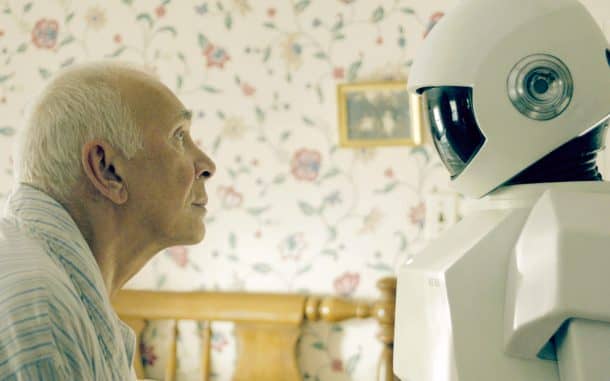Life and its treacherous paths are adventurous as long as you have the energy to deal with the highs and the lows. When you are old, and at the mercy of caregivers at nursing homes, the world suddenly dims out, leaving you to question the purpose of your existence, and digging a reason to wake up and get out of the bed every morning. Not everyone is lucky enough to have loved ones and family around forever, but these people do not deserve to live sad and lonely lives. To make this loneliness disappear, 300-pounds bear-faced robots have been developed to serve as care givers, preventing the elderly from ailments that are often aggravated by loneliness.
The National Academy of Sciences, US reports that the lonely people are at a higher risk of several illnesses including cardiovascular disease, elevated blood pressure, cognitive deterioration, and infection. We often hear people say “loneliness can kill” and it is true, quite literally. These robots will become live companions for the elderly, helping them to make movements while keeping them emotionally and mentally engaged.

Japan has appeared as a very strong economy in recent years while continuously advancing technologically, but it has created some problems of its own. The suicide rate in the country is rising mostly due to the work pressure, and the birth rate has dropped below drastically. More than 25 percent of the country’s population is above the age of 65 that calls for a lot of problems. The robotic service industry is expected to rise to 25 times of its current worth by 2035. The problems with shortage of human caregivers in the US and Europe is not nearly as bad as in Japan, but they are also moving towards a more robotic life style.
When it comes to personal robots, the first one that pops into mind is Rosie from Jetsons, but that also brings in other futuristic technology like flying cars. A future of that kind is far ahead, and these robots are not nearly as advanced as Rosie, but they sure can provide communications, emotional support, serving and fetching services, and they are still a fulfillment of many basic needs.
If you intend to get a robot care for you, it better be as cuddly and lively as Baymax from Big Hero Six. Japanese scientists have attempted to achieve something of the sort and created a cute and cuddly robot called Robear.
Another one created by a German company called Care-o-bot was employed at many German assisted living facilities to ferry food and drinks to the residents and entertain them with memory games to keep their minds sharp.
Honda’s ASIMO robot was released for the same purpose of providing assistance to those in need.
While some of these robots are proper humanoids, this is not what is required of them at all. Another one named Dinsaw is a dwarf created by CT Asia Robotics to act as a personal assistant. Its chores range from medicine reminders to health tracking and even answering calls from family and doctors.
Another robot similar to Dinsow is ElliQ that does the same tasks of reminding to take pills and connecting to family, friends, and medical health professionals. It also inquires about the patient’s physical and emotional health and checks the weather to suggest activities.
To be around both as a buddy and a guardian, MiRo, a mechanized canine companion, does all the basic chores that the Dinsow and ElliQ offer, but it also monitors your health.
Many are excited about the rise of robots in personal care, but many professionals have serious doubts about these solutions. Susan Madlung, gerontologist and Clinical Educator for Regional Programs and Home Health Re-Design at Vancouver Coastal Health, commented,
“Social isolation of seniors is a significant concern amongst gerontologists and caregivers alike. Robot care, in my mind, would only compound that issue. Although robots might seem like a good response to the growing need for caregivers, I could see this as being quite detrimental to the emotional and psychosocial well being of anyone, not just seniors. Humans need humans.”
The robots are rising but do you think that they will be able to replace the actual care and companionship of a real human? Will you ever be comfortable with a robot roaming the halls with no human being in sight? Comment below to share your views with us!



Technology never ceases to amaze me.